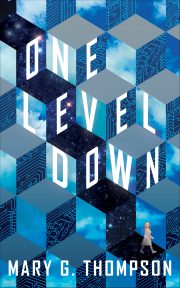Lit Fic Mags for Spec Fic Writers 102: Is it Literary?
by Caren Gussoff
 Note: Part One appears here: Lit Fic Mags for Spec Fic Writers 101
Note: Part One appears here: Lit Fic Mags for Spec Fic Writers 101
This may seem totally obvious, but is actually worth a deeper dive: if you want to market your speculative fiction to literary markets, it has to be significantly literary. Literary markets, though they may protest that they do not like/accept/read speculative fiction, actually do publish fiction with fantastic and futuristically elements all the time. But these stories are also, usually, highly literary. So, before you start packing up stories and entering them into the slush waiting room, you should really discern whether a literary audience is the appropriate audience for your piece…since this is the single most important thing editors will be subconsciously reading for.
Defining “literary” is slippery. If you search around, writers, teachers, and critics have written countless — often contradictory — descriptions of what makes something literary (verses mainstream or for a general readership/”popular”). They discuss everything from what the fiction looks like on the page to the authorial intent behind the piece as “qualifiers” (there’s also the derogatory saws about lit fic: that it is, by nature, self-indulgent, elitist in language and subject matter, or the cookie-cutter end-result of too many writer’s workshops and MFA programs).
In terms of speculative fiction, the shorthand has often been that anything far on either side of the continuum (sword and sorcery on one side, hard sci fi on the other) is usually not literary, while those in the muddy middle — such as urban fantasy, magical realism and soft sci fi, for instance — can be literary.
I don’t think the parameters of what fiction literary is that complicated, and I do believe that high fantasy and the hardest of sci fi can very well be literary (without mentioning the term that attempts to catch-all pieces with weird and literary elements: “slipstream.”)
Fiction with a literary sensibility tends to have two key elements that makes it literary:
- Voice and/or style are given precedence as the drivers of the story.
- Character rules
Whether it is the narrator’s voice or the authorial voice, the way in which the words are chosen, with thought to the effect, cadence, and connotation, is as important — if not more important — than the plot, idea, or theme. Character dictates in literary fiction, and is supported by voice and style. The style may be applied to the shape of the story itself (it starts where it begins, for example); its representation on the page (lack of indentations in paragraph breaks, use of italics or other nontraditional markers for dialogue or action); by following a deliberate set of parameters or restrictions (omitting a letter of the alphabet, for instance, or repeating the same set of words); or some other method (this list is far from exhaustive). And this applied style does some important work for the story, to deepen/draw out/add dimension/add perspective on and to the character.
What the end result looks and feels like is as different as every writer, every story. Some use these effects in pursuit of verisimilitude, trying to represent internal or external authenticity to a reader. Others are more interested in conveying the emotions of a moment, or expressing something more philosophical or political through the experience of the reading. But in general, voice, style, and character were, in the writing of the story, a more critical means of conveying the story than plot or idea (both or one of which may still be present and strong). As for the two ends of the fantasy and sci fi continuum, there are many sword and sorcery and hard SF stories which are more plot and idea driven than concerned with literary elements…reasons why these two, in our genre, have gotten unfairly dubbed always non-literary. But it is not necessarily true in any way, and there are lots of examples of literary work across the whole genre.
What do you think? Have I missed anything quintessential literary concepts? I’d love to read your comments.
In the last post of this trio, I’ll feature some of the best (IMHO) genre/weird friendly literary magazines, as well as some great databases that are constantly updated as new mags appear (or disappear.)
•••
Science fiction writer Caren Gussoff lives in the Pacific Northwest with two cats and an artist. Her third novel, a post-pandemic apocalyptic little story, actually has a car chase. Publications, awards and mutterings are available at www.spitkitten.com


